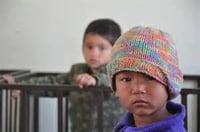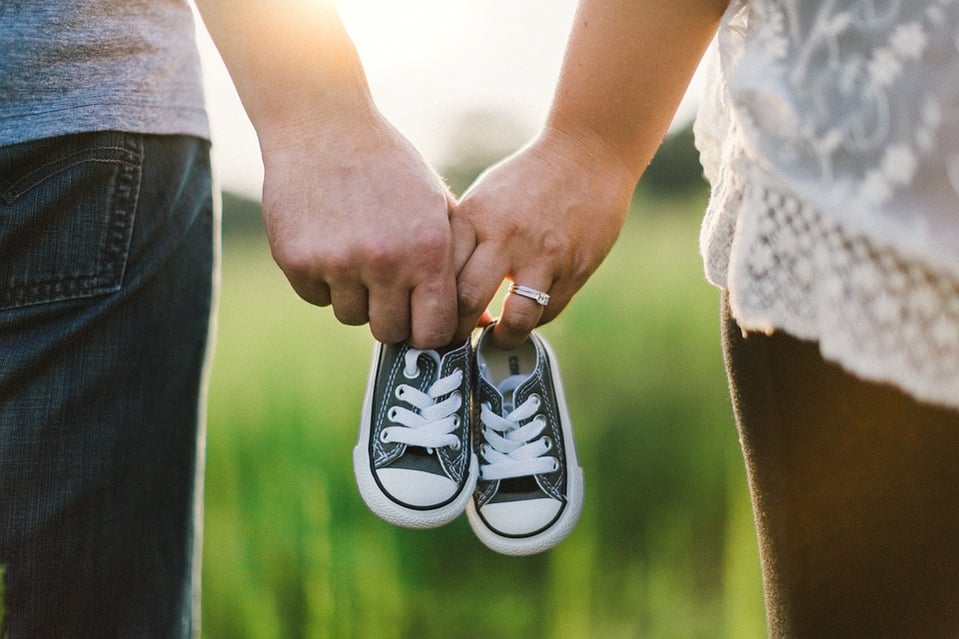 "Our daughters are here" we all whispered as we heard our children being escorted into the adjoining room in the provincial office in China. We excitedly, nervously, and quickly finished our required adoption documents; wanting more than anything to hold our daughters. Finally, my daughter appeared bundled in three layers of clothes wearing bright yellow socks held by a petit, older Chinese woman who looked at me with a sorrowful smile. My daughter turned 9 months old that day. She had spent her first 9 months in a Social Welfare Institute and now will spend the rest of her life in our home and loving family.
"Our daughters are here" we all whispered as we heard our children being escorted into the adjoining room in the provincial office in China. We excitedly, nervously, and quickly finished our required adoption documents; wanting more than anything to hold our daughters. Finally, my daughter appeared bundled in three layers of clothes wearing bright yellow socks held by a petit, older Chinese woman who looked at me with a sorrowful smile. My daughter turned 9 months old that day. She had spent her first 9 months in a Social Welfare Institute and now will spend the rest of her life in our home and loving family.
Hundreds of thousands of other children, like my daughter, are waiting in orphanages around the world. They are faced with unthinkable challenges as they strive to survive without a loving family. I will never forget the blank faces of the children line-up on my daughter's orphanage's patio strapped into walkers staring at gray walls with no toys, music, books, pictures, or people to engage their developing minds. Imagine an infant or young child laying in a bed hungry, bored, and crying to get the attention of one of the few busy caregivers; wanting to be fed, played with and held. It is easy to understand how institutionalized children are at risk for developmental challenges. Children waiting in orphanages are too often surrounded by a sterile, unresponsive and uninteresting environment. It is estimated that for every three to five months in an institution, a child loses approximately one month of overall development. Institutionalized children are at risk for delays in their language, motor, sensory, cognitive, and social/emotional skills. However, they are incredibly resilient.
Institutionalized children have a great capacity to recover from the effects of institutional care once in the care of a loving and nurturing family. Again and again I have witnessed the amazingly quick development of skills with days and months of a child joining a family. Developmental delays usually improve rapidly after adoption into a loving home with many institutionalized children making developmental gains faster than the normal maturation curve. Parents and researchers both report rapid growth in cognitive, language, motor, social, emotional, and attachment development during the first year home. It is estimated that for the majority of children institutional variables no longer influence development three years after adoption. The best predictor of positive outcomes for the child is the "fit" with the family and the health of the parent-child relationship.
It is truly miraculous to see a child's development flourish under the care of a loving family. Every day as I watch my children play, learn, and love, I am awed by their daily growth and development. Every institutionalized child deserves a family who can nurture their resilient spirit. You can be that family!
To explore your family's options in international adoption, please contact Family Connections, Inc. at 607-756-6574 or info@adoptfamilyconnections.org. Family Connections, Inc. is an authorized New York State adoption agency that has achieved Hague Accreditation from the Council on Accreditation. The Agency provides home study services and post-adoption support for families adoption internationally. The Agency supports families throughout New York State, including but not limited to Cortland, Syracuse, Watertown, Albany, Rochester, Binghamton, Ithaca, Elmira, and New York City. The Agency would be thrilled to support your family's adoption of an institutionalized child from abroad.
To learn more about international adoption, please click below to download a Free Guide to Inter-county Adoption.




Let Us Know What You Thought about this Post.
Put your Comment Below.